Plants ordered now will ship Spring 2026 🙂
Aloe vera plant, yellow flowered, quart size, organic
$21.00
Family: Aloe (Asphodelaceae)
Hardy to Zone 9 to 10, but commonly grown as a potted plant kept indoors or on the summer patio (shade)
Aloe Vera is a perennial succulent which came originally from the Island of Socotra in the Arabian Sea. These beautiful, soft and edible aloes prosper in the gentle light from almost any window. Their leaves are thick, spotted in white, spines rubbery and harmless, leaves filled with thick gel. These plants flower yellow. Space plants 1 to 2 feet apart.
Potted Plant Certified Organically Grown, will be bare-rooted to ship
Out of stock

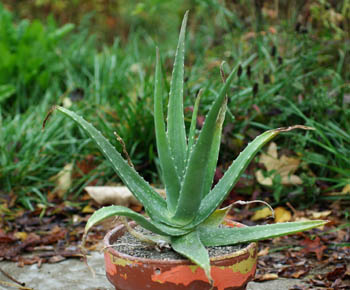
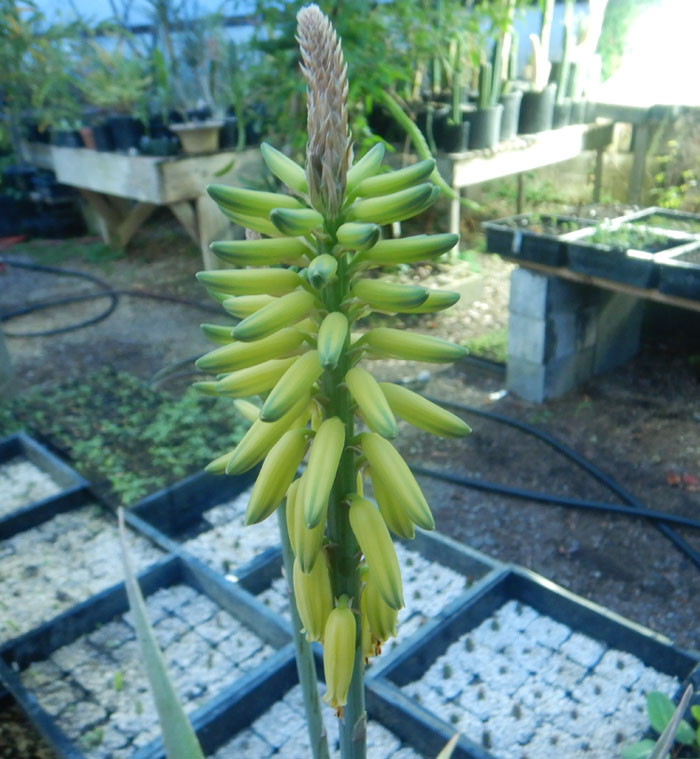
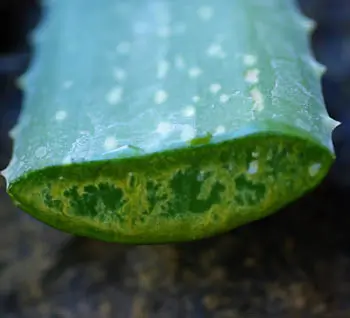
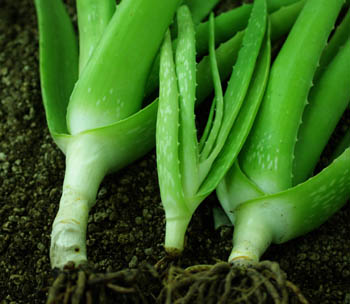
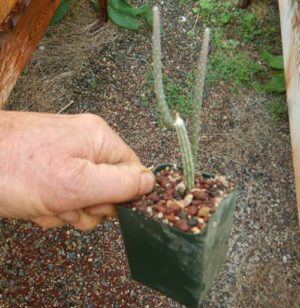
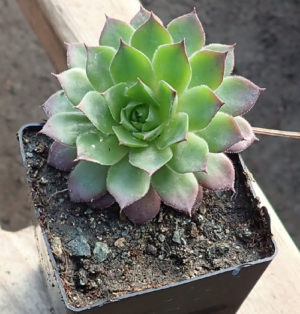
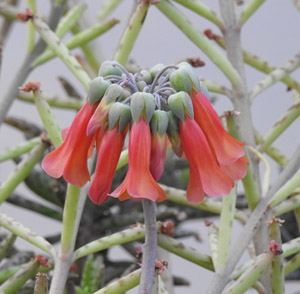
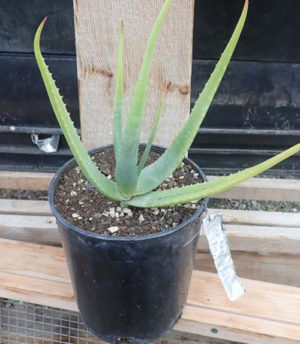
Question
Mir (verified owner) –
Hi Richo & team,
When I slice off a piece of an Aloe vera leaf to harvest its jelly, the entire leaf eventually withers away to a dry crisp! What is the best way to preserve all the leaves including the ones that have been cut? Is there a specific cutting technique you could please share?
Many thanks
Upvote if this was helpful (1) Downvote if this was not helpful (0) Watch Unwatch Flag for removal
Richo Cech –
Hello Mir,
Tanks for writing. I’m not sure there is any cure for this except to use the entire leaf at once and grow more aloes. Make sure you’re harvesting the older leaves on the outside of the rosette. Pull the leaf away from the crown, wipe it off, lay it on a plate, cut along the length of it, open it out and scrape the jell off with a spoon. richo
Upvote if this was helpful (2) Downvote if this was not helpful (0) Flag for removal
Question
Faizan –
Hi Richo! Can I grow this aloe Vera indoors?
Upvote if this was helpful (0) Downvote if this was not helpful (0) Watch Unwatch Flag for removal
Richo Cech –
yes, it is usually grown as an indoor plant that requires little light and little water or other attention.
Upvote if this was helpful (0) Downvote if this was not helpful (0) Flag for removal
Question
isabelleherbert –
Dear Richo, is Aloe vera also called sweet Aloe?
Upvote if this was helpful (1) Downvote if this was not helpful (0) Watch Unwatch Flag for removal
Richo Cech –
Hi Isabelle, Our Aloe vera is bitter, not sweet. The active ingredient in good aloe is aloin, an intensely bitter substance. I’m not aware of any aloe species that is sweet. There are recipes out there for sweetened aloe juice (using sugar, etc.) and this may have caused some confusion. richo
Upvote if this was helpful (1) Downvote if this was not helpful (0) Flag for removal
isabelleherbert –
Thanks for clarifying
Upvote if this was helpful (0) Downvote if this was not helpful (0) Flag for removal
Question
Faizan –
Hello,
When will this plant be available again? Also, is this specific aloe vera edible and used in cosmetics? Please advise. Thank You.
Upvote if this was helpful (0) Downvote if this was not helpful (0) Watch Unwatch Flag for removal
Richo Cech –
Hello Faizan, Thanks for writing! Aloe vera is available 2 or 3 times yearly–hit waitlist. There are many species of aloe besides Aloe vera that are nontoxic (read edible in prescribed dosages) and useful in cosmetics (functional aloe gel is present in most aloe species!). I would suggest getting Aloe ferox or Aloe arborescens that are currently in stock and nicely sized up. Please read pages 190 to 196 of “Growing Plant Medicine Vol 1.” richo
Upvote if this was helpful (0) Downvote if this was not helpful (0) Flag for removal
Question
Chima –
Aloe vera plant, yellow flowered, organic.
Is this kind of Aloe vera plant eatable?
Upvote if this was helpful (0) Downvote if this was not helpful (0) Watch Unwatch Flag for removal
Richo Cech –
yes, this is the standard aloe vera plant, and hit “waitlist,” we’re working them up. r
Upvote if this was helpful (1) Downvote if this was not helpful (0) Flag for removal
Gintas –
Richo, my deep respect to you. Same question about Aloe arborescens – is the juice of this plant sweet? As Ayurveda allow to use bitter juice for outside using, sweet juice – Inside using
Upvote if this was helpful (1) Downvote if this was not helpful (0) Watch Unwatch Flag for removal
Richo Cech –
Hello Gintas, Aloe arborescens juice is very bitter! You know, really, all aloes are going to be bitter, due to the presence of aloin, a very bitter principle.
It is possible that if only the gel is extracted, and not the yellow anthraquinone constituent that occurs just below the skin of the leaf, that a sweet taste might be achieved. But for all practical purposes, aloes are bitter. Richo
Upvote if this was helpful (1) Downvote if this was not helpful (0) Flag for removal